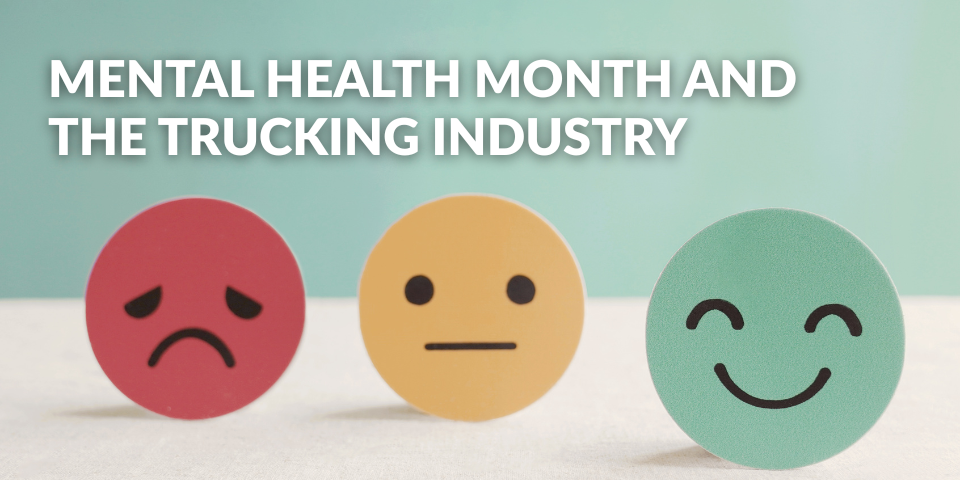In The News

Mental Health Awareness Month and the Trucking Industry
Each May, the nation observes Mental Health Awareness Month, a time to shine a spotlight on the importance of mental well-being for everyone. For those in the trucking industry, this month carries added significance. Driving a commercial vehicle isn’t just a job - it’s a lifestyle, one that often comes with extended isolation, long hours, and high stress. These factors can create a perfect storm for mental health challenges, which are too often overlooked or silently endured in the cab of a truck.
Long Haul Loneliness
Truck drivers are essential to keeping our economy moving, but the work can be deeply isolating. Extended time away from loved ones and long stretches without meaningful human interaction can take a significant toll. What starts as fatigue or a missed phone call can slowly morph into deeper emotional struggles. Without regular social contact, drivers may not even realize how their mental health is slipping until it becomes overwhelming.
Silent Signals
Just like keeping an eye on road signs and gauges, truckers need to watch for mental health warning signs. Depression doesn’t always look like sadness. It might appear as a disinterest in talking with family or friends, preferring isolation, or just going through the motions without any joy.
Drivers who have experienced traumatic events - like a crash or near-miss - may also suffer from symptoms of post-traumatic stress, such as flashbacks, anxiety, or being constantly on high alert. This chronic stress can lead to emotional exhaustion, sleep disturbances, and even physical symptoms like heart palpitations or panic attacks.
Healthy Body, Healthy Mind
Mental health isn’t just in your head - your body plays a role too. Biological factors such as sleep, nutrition, and exercise have a major impact on emotional well-being. Regular physical activity, even just a 20-minute walk during a rest stop, can help alleviate stress and improve mood.
Consistent meal times and staying hydrated (with water, not just coffee or soda) also supports cognitive function and emotional stability. And don’t underestimate the value of sleep. Turning off electronics an hour before bed and using white noise can improve sleep quality, even in the less-than-ideal settings of a rest area or truck stop.
It’s Strong to Speak Up
The trucking industry is male-dominated, and unfortunately, many men have been taught to keep their emotions bottled up. But real strength lies in vulnerability. It’s okay to talk about your feelings, and more importantly, it’s okay to seek help. There are mental health professionals and clinics that specialize in helping men navigate the complex challenges they face, including those specific to drivers.
Combatting Isolation
While some drivers thrive on solitude, prolonged isolation can lead to depression and anxiety. If this resonates, consider small but powerful changes - cutting back days on the road, teaming up with another driver, or scheduling daily check-ins with loved ones. These touchpoints provide a lifeline and a sense of connectedness that can make all the difference.
You’re Not Alone - Help is Available
Support is closer than you think. There are government programs, nonprofit organizations, and private therapists available, many offering affordable or sliding-scale services. Some even provide culturally sensitive care or specialize in certain issues such as trauma, addiction, or anxiety.
If you’re struggling, reach out. There are hotlines, online resources, and professionals who understand the trucking lifestyle and are ready to help.
Mental Health Matters
Your mental health matters - not just to you, but to everyone who cares about you. The world may feel heavy at times, especially from behind the wheel. But you’re not in this alone. Just as you check your load and inspect your rig, take time this Mental Health Awareness Month to check in with yourself.
Because while the road can be long and lonely, help - and hope - is always within reach.
